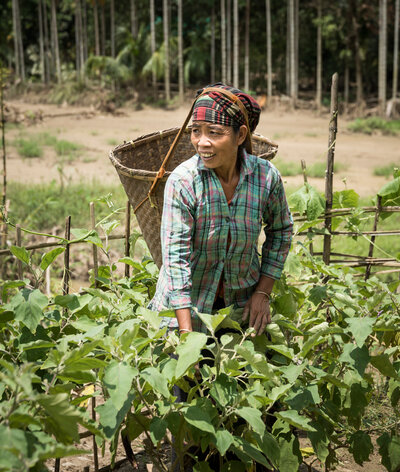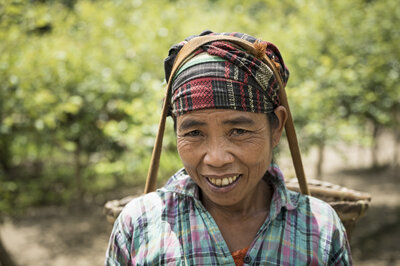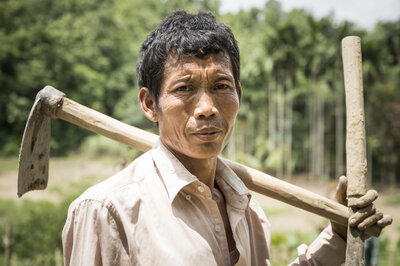Thanks to their tree nursery, a family in the hills of Bangladesh have left poverty and deprivation behind. Surjaa Rani Chakma, the eldest daughter, is going to college – something her grandmother and parents would never have dreamed of for themselves.
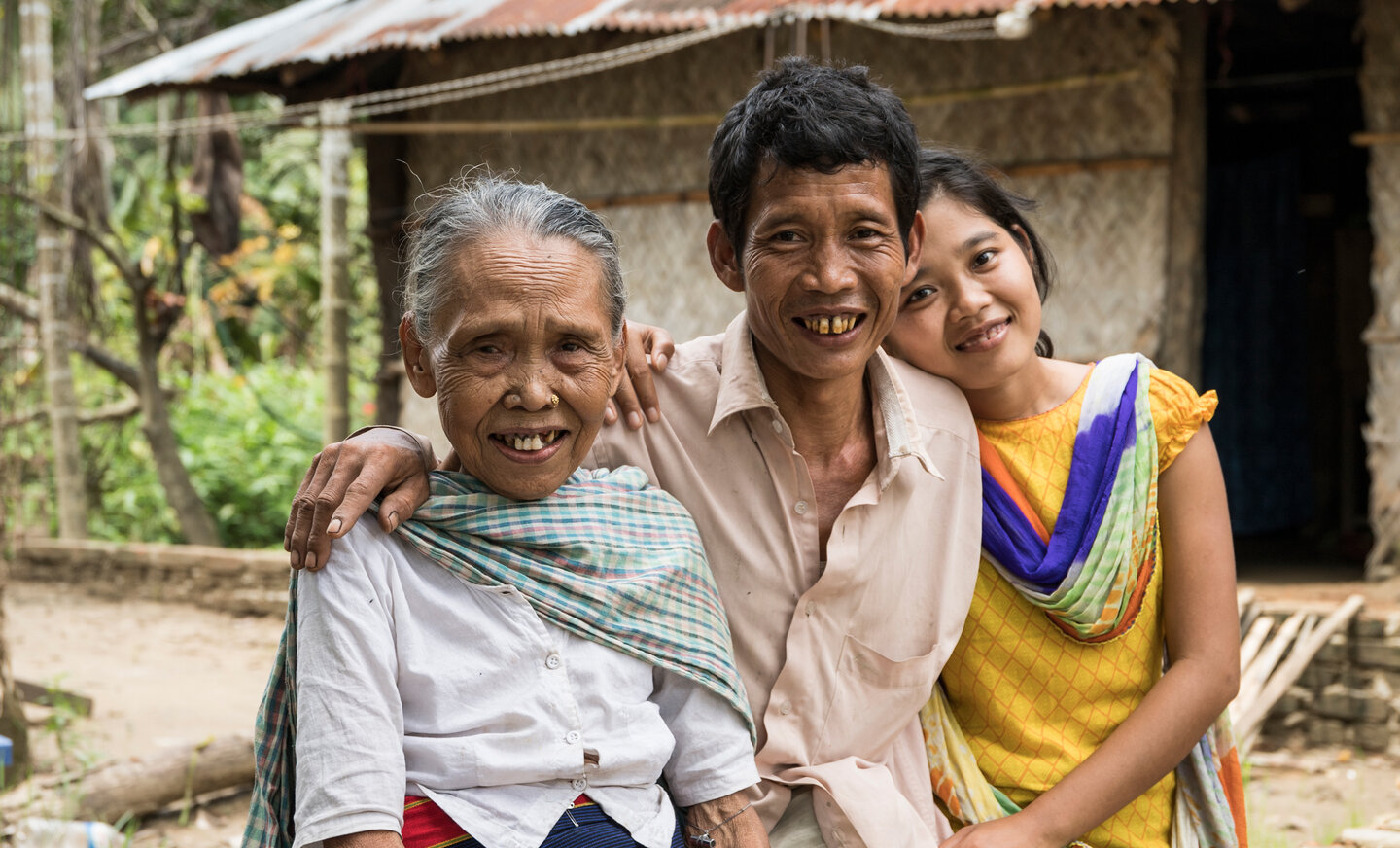
Surjaa Rani is part of the tiny world of Bodhipur, a hamlet in the Chittagong hills. Even as a little girl she helped around the house. She knows how to stoke a smouldering fire without filling the room with smoke, and the best way to carry a full pitcher of water.
Departure to a new world
She handles chores in and around the house deftly and as a matter of course. And yet she moves as though she had something else on her mind: she’s already taken a small but significant step out of the world of her farming village. Surjaa Rani – which means “Queen of the Light” – is going to college now, she’s started studying social sciences. After college, she hopes to find a job in the government or an NGO – a job in which she can help others. Surjaa also hopes someday she’ll be able to support her parents, who are making her new life possible.
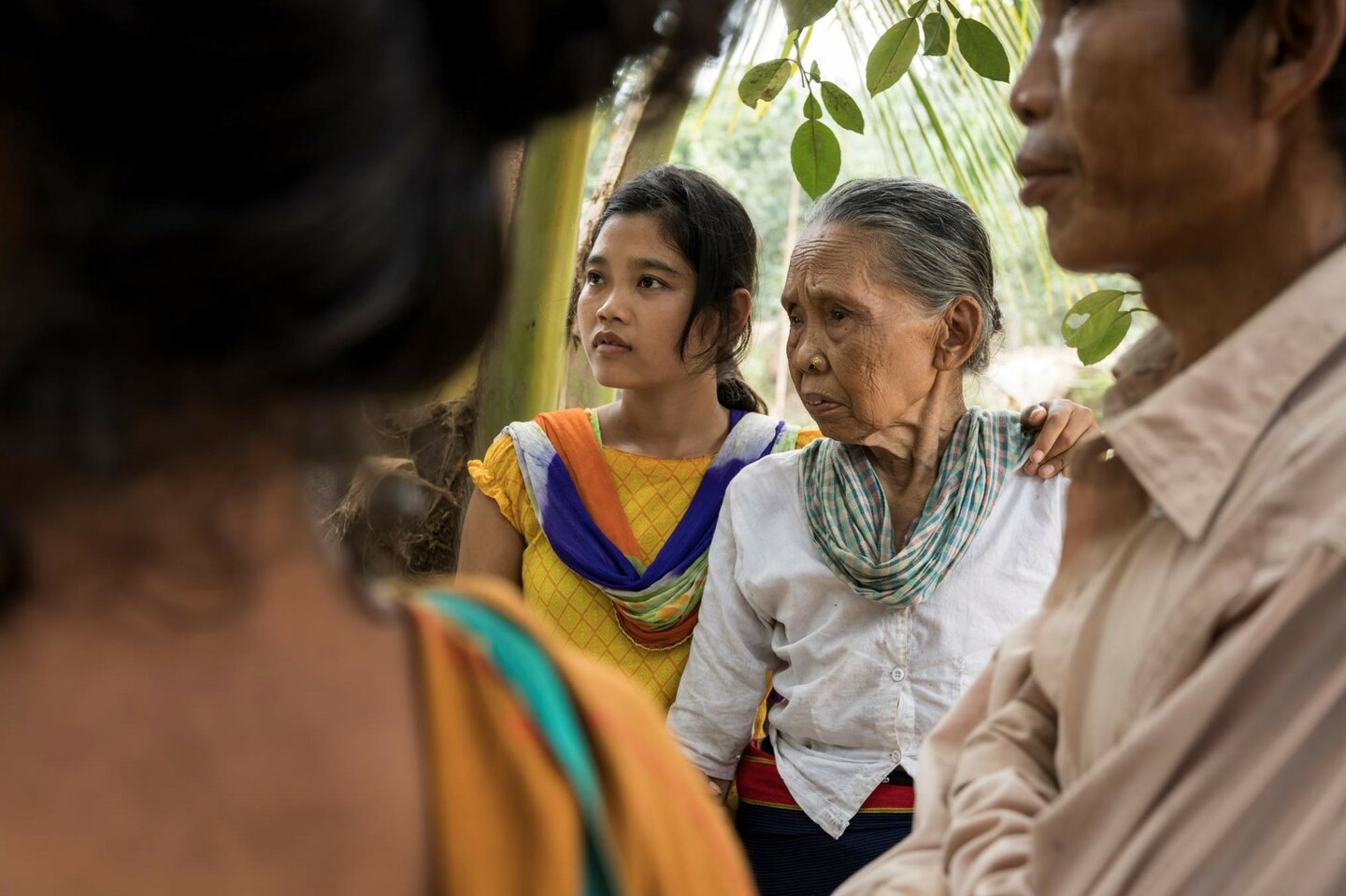
A life filled with hardship
Her grandmother, Mongal Puti, tells us what it was like back in the day when nobody went to school and when farmers slashed-and-burned clearings in the forest to plant rice and vegetables there. Farmers’ kids didn’t go to school in those days.
Mongal groans. When, after a few years, the soil was depleted, the farmers cleared a new plot and the forest eclaimed the abandoned field. The monsoons came and went. Their sons became farmers and their daughters married farmers. And nothing changed. Mongal grew old and frail.
Mongal Puti, grandmother
Mongal Puti, grandmother
What does the grandmother think of her granddaughter’s life? Is a life of school desks and books a better life? Mongal looks up and brushes this naïve question aside with a wave of her hand. Only those who’ve never known gruelling physical labour could ask such a question. Our conversation has tired her out and Surjaa helps her into bed. Surjaa’s sister is already lying there, recovering from the flu.
A family enterprise arises
Surjaa’s family’s house is set on a hillside, a gentle incline leading down to the Maniksari creek, where the rice paddies are (or rather, where they were till the latest storms hit). Some one hundred twenty families live here in simple houses connected by a network of trails. There are some fruit trees loosely planted between the houses.
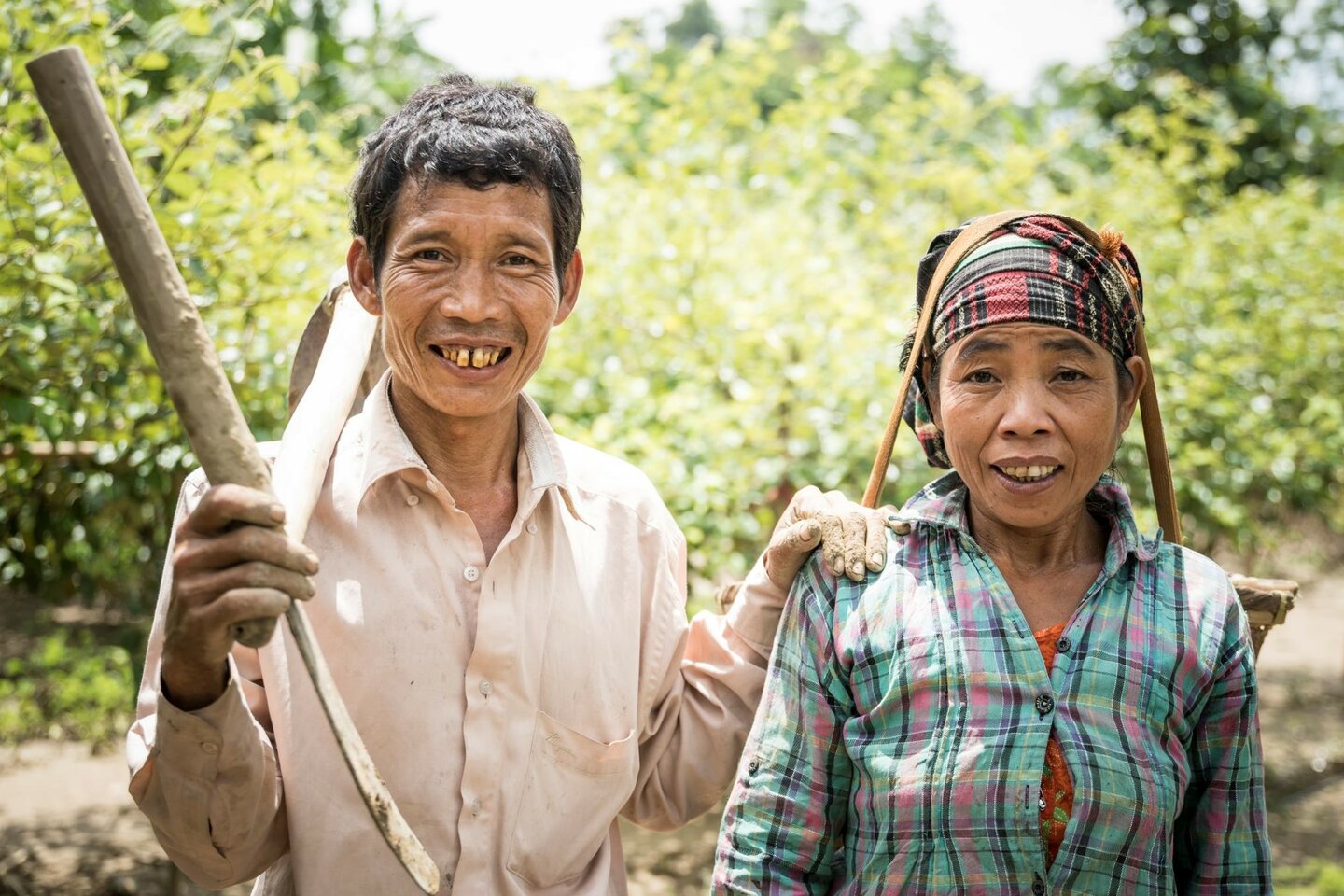
Hema Kumar, Surjaa’s 50-year-old father, says, “We are not educated. We have to work.” Along with his wife, Nil Mala, and other farmers in the village, he switched from slash-and-burn farming to permanent cultivation in 2005. That was a first step away from subsistence farming towards growing crops that can be marketed – to yield income.
Helvetas helped the villagers organize and improve their farming methods and collectively obtain better prices for their produce.
A few years ago, Hema and Nil dared to go a step further and set up a tree nursery, in which they also sell vegetable seedlings. And their plan worked out. The very first year of the nursery, they were already able to pay half of Surjaa’s tuition from their profits.
Setback and a fresh start
Then came the heaviest monsoon in living memory, culminating in the disaster of 13 June 2017. It rained non-stop for three days straight. The ground was saturated. The hillsides began sliding down in places, burying whole houses. Nine villagers died, four of whom were members of Surjaa’s extended family. Her own house was only slightly damaged. But the tree nursery was buried under branches of the mudslide and floodwaters.
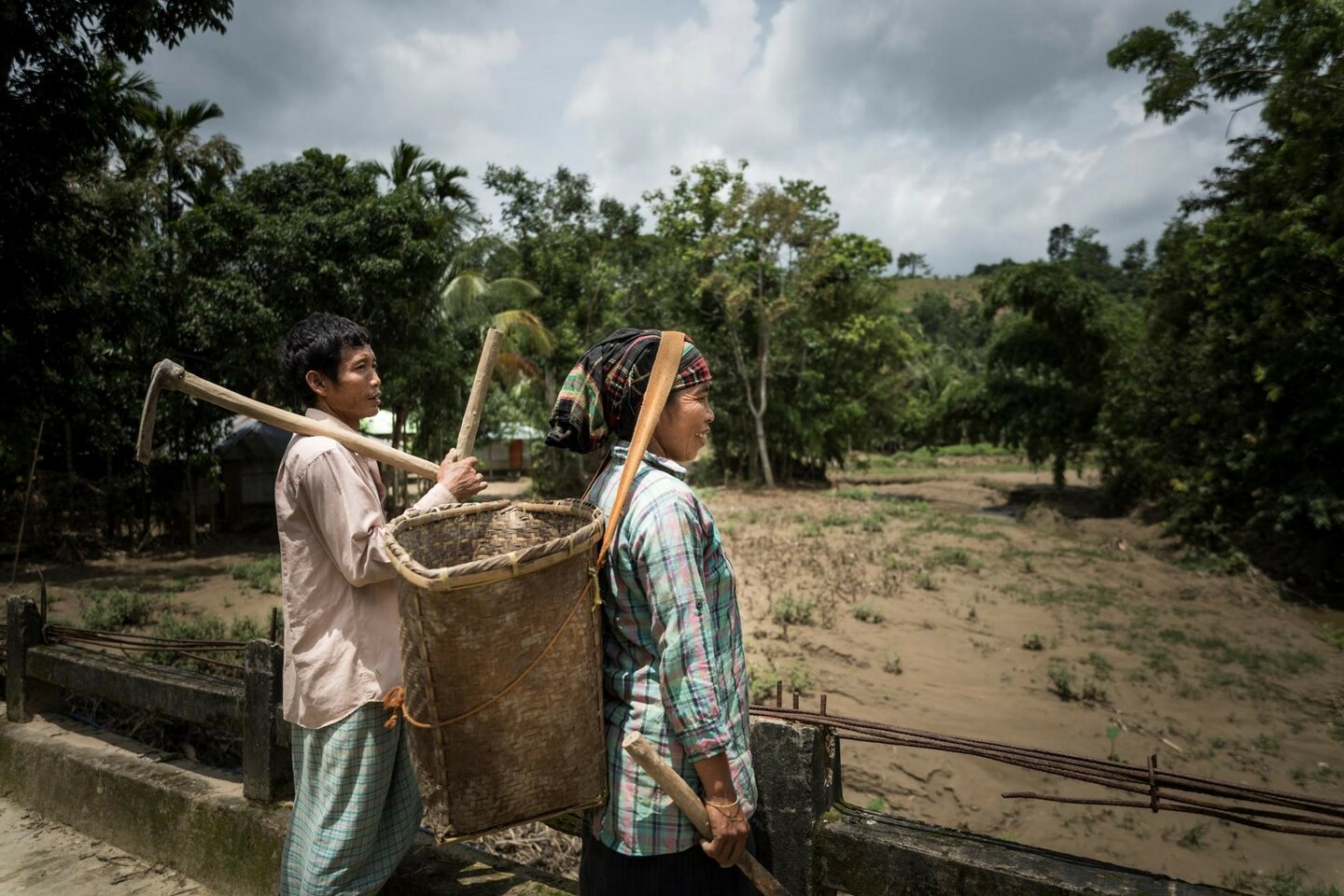
A shadow falls over her father’s face when he remembers. And then when he returned to the tree nursery for the first time after the landslide, a week later, he noticed that all was not lost. Some seedlings still protruded from the thick layer of mud. So Hema and Nil immediately got to work.
Hema Kumar, Surjaa's father

In the meantime, Surjaa’s parents have begun selling seedlings again. They have just finished working on a batch of mango seedlings and got them ready for the next planting season.
The family holds together
When parents work hard to make a good education possible for their children, it’s not just about getting well-paid jobs: above all it’s about dignity. In Bangladesh, as in too many other countries, farmers are treated with little respect. They are considered coarse and uneducated, and made to feel inferior. Naturally, parents want to make sure their children don’t have to endure this contempt any longer. "My daughter will get further than we ever did. And my pride will always be with her."
Surjaa Chakma, daughter
Surjaa's parents never went to school. A few years ago she taught her father how to write his name. Now he doesn’t have to sign personal documents with his right thumbprint. Surjaa talks about this breakthrough the same way she talks about going to college: as a matter of course.











